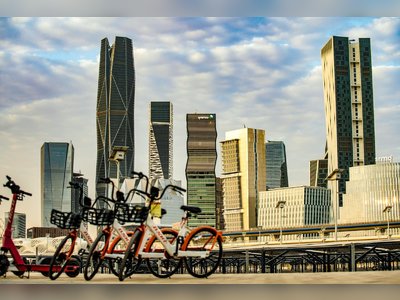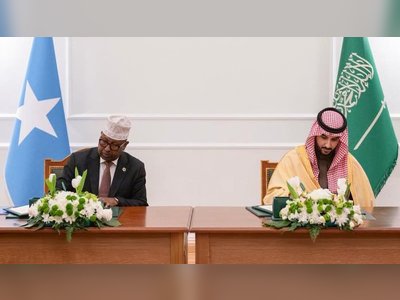UK Suspends Arms Export Licenses to Israel; Global Geopolitical Developments Unfold
UK suspends arms export licenses to Israel over humanitarian law concerns, while New Zealand cites China as a major intelligence threat in annual report.
The UK has suspended 30 of its 350 arms export licenses to Israel over concerns that the equipment might be used for serious violations of international humanitarian law. This decision drew criticism from Chief Rabbi Ephraim Mirvis for potentially undermining Israel without contributing to peace or hostage release. Foreign Minister David Lammy, however, defended the move as a necessary safeguard.
Meanwhile, New Zealand's Security Intelligence Service has deemed China a "complex intelligence concern" in its annual threat report, highlighting Beijing's covert influence and manipulation of media through front organizations. Prime Minister Christopher Luxon stressed the need for caution in maintaining New Zealand's independent values, despite significant economic ties with China.
Shifting to the global energy market, Brent oil prices have dropped to $77.35 a barrel amid concerns about China's slow economic growth, which overshadowed the halt in Libyan oil production. On the other hand, West Texas Intermediate crude saw a rise to $74.05 as the market remains jittery about demand and ongoing geopolitical disruptions. OPEC+ plans to boost output, despite these uncertainties.
In the fintech sector, Tabby, a Saudi buy-now-pay-later company, has acquired the digital wallet provider Tweeq, aligning with Saudi Arabia’s Vision 2030 National Fintech Strategy. This strategic move, announced at the 24 Fintech event in Riyadh, aims to expand Tabby's financial products and enhance digital spending access for consumers.
On the humanitarian front, Riyadh's Project Masam has cleared over 1,000 explosive devices in Yemen, facilitating safe passage and aid delivery. Since its inception in 2018, the project has successfully removed 457,711 mines and unexploded ordnances, significantly improving the safety of civilians in regions such as Marib, Aden, and Sanaa.
Lastly, Iran's Supreme Court has upheld the death sentence for a Basij volunteer involved in the killing of 60-year-old Mohammad Jamehbozorg during the 2022 Mahsa Amini protests. This marks an unusual instance of accountability within security forces amid a crackdown that resulted in over 500 deaths and 22,000 detentions. The current administration continues to investigate allegations of police brutality, including a recent controversial custodial death.
Meanwhile, New Zealand's Security Intelligence Service has deemed China a "complex intelligence concern" in its annual threat report, highlighting Beijing's covert influence and manipulation of media through front organizations. Prime Minister Christopher Luxon stressed the need for caution in maintaining New Zealand's independent values, despite significant economic ties with China.
Shifting to the global energy market, Brent oil prices have dropped to $77.35 a barrel amid concerns about China's slow economic growth, which overshadowed the halt in Libyan oil production. On the other hand, West Texas Intermediate crude saw a rise to $74.05 as the market remains jittery about demand and ongoing geopolitical disruptions. OPEC+ plans to boost output, despite these uncertainties.
In the fintech sector, Tabby, a Saudi buy-now-pay-later company, has acquired the digital wallet provider Tweeq, aligning with Saudi Arabia’s Vision 2030 National Fintech Strategy. This strategic move, announced at the 24 Fintech event in Riyadh, aims to expand Tabby's financial products and enhance digital spending access for consumers.
On the humanitarian front, Riyadh's Project Masam has cleared over 1,000 explosive devices in Yemen, facilitating safe passage and aid delivery. Since its inception in 2018, the project has successfully removed 457,711 mines and unexploded ordnances, significantly improving the safety of civilians in regions such as Marib, Aden, and Sanaa.
Lastly, Iran's Supreme Court has upheld the death sentence for a Basij volunteer involved in the killing of 60-year-old Mohammad Jamehbozorg during the 2022 Mahsa Amini protests. This marks an unusual instance of accountability within security forces amid a crackdown that resulted in over 500 deaths and 22,000 detentions. The current administration continues to investigate allegations of police brutality, including a recent controversial custodial death.











